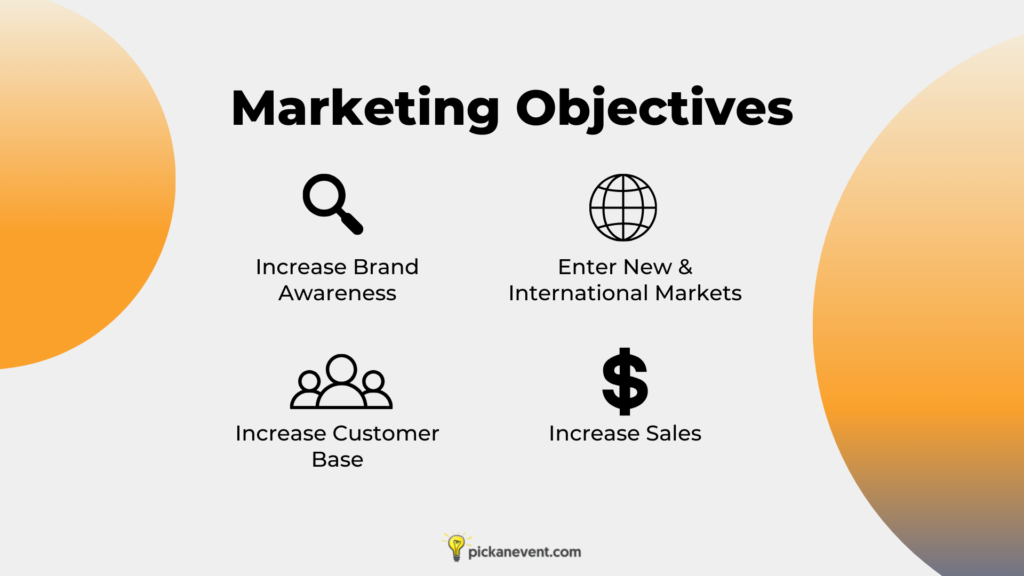Wondering how to make a marketing plan? Whether you’re new to starting a business or keen on marketing, a clear plan is your secret weapon. Picture it as your unique map, guiding your business through the marketing journey.
In this blog post, we’ll explain what a marketing plan is all about, why it’s super important for making a business successful, talk about different types of plans, and show you how to make your own just right for what you want to achieve.
So, let’s get started on this marketing adventure!
Table Of Contents
- What Is a Marketing Plan?
- The Importance Of a Marketing Plan
- What Are The Components Of A Marketing Plan?
- Types Of Marketing Plans
- How to Write A Marketing Plan (+ Example)
- Key Takeaway
- FAQs
What Is a Marketing Plan?
Think of a marketing plan like a detailed plan for a big journey. It helps businesses promote their products or services effectively.
This plan carefully lays out what the company wants to achieve with its marketing, who it wants to reach, the things it’ll do, and what it needs to make it all happen. It’s like having a roadmap that keeps everyone on track toward the same goals.

Marketing Plan Goals
The goals in a marketing plan are specific objectives a company aims to achieve through its marketing activities. These objectives could be:
- Increasing brand awareness
- Attracting more customers
- Boosting sales
- Expanding into new markets
- Improving customer retention
- Enhancing product/service visibility.
To be effective, these goals need to be clear, something you can measure, possibly reach, be important, and set for a specific time (SMART).

The Importance Of a Marketing Plan
It is like a tool that helps a company know where it’s going and how to get there. Here’s why having a marketing plan is super important, especially in event management:
Direction and Focus:
It shows the way, helping the team stay focused and work towards specific goals.
Smart Use of Resources:
It helps spend money, time, and effort wisely, avoiding waste and putting them where they make the most impact.
Understanding Customers Better:
Researching the market helps understand what customers like ensuring products and services match their needs.
Measuring Progress:
Goals in the plan are like checkpoints, allowing us to see how far we’ve come, making it easy to see what’s working and what needs improvement.
One Clear Message:
It ensures that our message is the same everywhere, making our brand strong and trustworthy to our audience.
What Are The Components Of A Marketing Plan?
Here are the main Marketing Plan Components:
- Executive Summary: A quick overview of the plan, summarizing its main parts and goals.
- Market Analysis: Deep research into the market, looking at who’s interested, what’s popular, who the competition is, and where the opportunities are.
- Marketing Goals and Objectives: Clear goals that match the overall business goals, making sure they’re specific, measurable, achievable, relevant, and time-bound.
- Target Audience: Detailed info about the ideal customers or groups the company wants to reach and influence.
- Marketing Strategies: Focus on how the company will achieve its marketing goals, including event planning, positioning the product, setting the price, promoting it, and getting it to customers.
- Marketing Tactics: Specific activities and plans to carry out the strategies, like online ads, creating content, or using social media.
- Budget and Resources: You can decide how much money, people, and tools are needed to make the marketing tactics work.
- Timeline and Milestones: A clear schedule showing when each marketing activity happens and when important goals are reached.
- Measurement and Analysis: Using numbers and indicators to measure how well the plan is working and adjusting plans based on these results.
- Risk Analysis and Contingency Plans: Looking at possible problems and having plans ready to deal with them, making sure the marketing plan keeps going even if things get tough.

Types Of Marketing Plans
1/ Annual Marketing Plan:
A year-long plan that lays out marketing goals for the entire year, aligning them with the big business goals.
2/ Product Launch Marketing Plan:
Made for launching new stuff! It focuses on creating excitement, attracting customers, and making the launch a success.
3/ Digital Marketing Plan:
All about online marketing – ads, social media, content, emails, and more. Reach lots of people on the internet!
4/ Brand Awareness Marketing Plan:
Shines a big spotlight on your brand to make sure everyone knows it and loves it. It’s all about creating a strong brand presence.
5/ Event Marketing Plan:
All the plans to make an event super cool and make sure lots of people come and have a blast!

Related:
- Event Budget
- 17 Types Of Events
- Top 5 Best Event Plan Examples
- Event Management Tools: Key To Success
- 11 Must-Have Skills For An Event Manager in 2024
How To Write A Marketing Plan (+ Example)
Here’s a step-by-step guide with easy-to-understand examples to help you along the way:
1. Set Clear Objectives:
Start by defining what you want to achieve. For instance, your objective might be to increase product sales by 20% in the next six months.
- Example: Objective: Increase product sales by 20% in the next six months.
2. Know Your Target Audience:
Understand who your ideal customers are – their age, interests, location, and preferences. Tailor your marketing to suit this audience.
- Example: Target Audience: Young adults aged 25-35, interested in fitness and health, located in urban areas.
3. Research Your Market:
Study your market, competitors, and industry trends to identify opportunities and challenges. This helps in devising effective strategies.
- Example: Identify top competitors and analyze their marketing strategies.
4. Develop Marketing Strategies:
Based on your objectives and research, create strategies to achieve your goals. For instance, a strategy could be to use social media advertising to reach a wider audience.
- Example: Strategy: Utilize social media advertising to reach a broader audience and increase brand awareness.
5. Choose Specific Tactics:
Decide on the practical steps to implement your strategies. For the social media strategy, specific tactics could include creating engaging posts and running targeted ads.
- Example: Tactic 1: Create engaging posts showcasing product benefits and customer testimonials.

6. Allocate a Budget:
Determine how much money you can allocate to each tactic. This ensures you stay within your financial limits while effectively implementing your plan.
- Example: Allocate $500 monthly for social media advertising.
7. Set a Timeline:
Establish a clear timeline for each tactic. This helps organize your efforts, enhance your time management skills, and ensure that everything is executed on time.
- Example: Week 1-2: Design and schedule social media posts. Week 3-4: Launch targeted social media ads.
8. Measure Progress and Adjust:
Set metrics to measure the success of each tactic. Based on the results, adjust your plan as needed. For instance, if a particular ad campaign isn’t performing well, consider modifying it.
- Example: Measure engagement (likes, shares, comments) on social media ads bi-weekly. If engagement is low, adjust the ad content or target audience.
9. Document Your Plan:
Put all the details in a clear document. This can be a spreadsheet, a document, or a marketing planning tool. Keep it organized and accessible for everyone involved.
- Example: Create a Google Sheet with sections for objectives, strategies, tactics, budget allocation, and timelines.
10. Regularly Review and Update:
Regularly review your marketing plan – at least quarterly. Update it based on changing trends, results, or new business goals.
- Example: Review the marketing plan at the end of each quarter to assess progress and make any necessary adjustments.
More tips and advice about events? Pick an event that you’re concerned with, and we’ll help you!
Key Takeaway
Hopefully, with our guide, you can create a marketing plan successfully. Moreover, to enhance brainstorming and make meetings more engaging, consider using tools like AhaSlides. It can spark creativity and collaboration, helping you refine your marketing plan for maximum impact. Stay organized, stay focused, and let your marketing plan drive your business to thrive in the dynamic world of marketing!
FAQs
How do you write a marketing plan?
1. Set clear objectives.
2. Understand your target audience.
3. Conduct market research.
4. Develop effective marketing strategies.
Choose specific tactics.
Allocate a budget.
Set a timeline.
Measure progress and adapt.
Document and communicate the plan.
Regularly review and update.
What is a strategic marketing plan?
A strategic marketing plan is a comprehensive approach that outlines long-term goals and strategies to achieve a competitive edge in the market.
Ref: Hubspot





